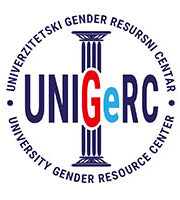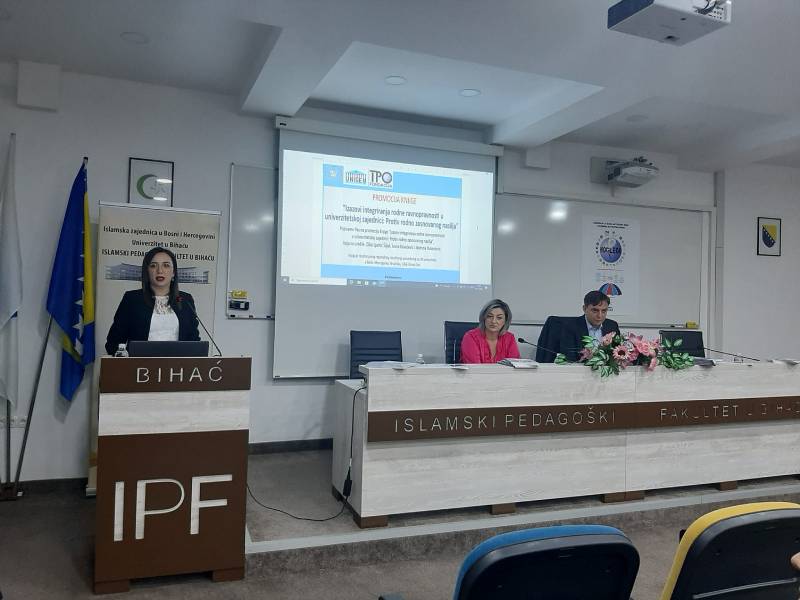On November 30, 2022, the University of Bihać at the Faculty of Islamic Pedagogy promoted the first regional research on gender equality in academic communities conducted as part of the UNIGEM project, which the TPO Foundation, with the support of the United Kingdom Government, is conducting with 19 universities in BiH and the region, including an institutional partner, UNBI. The research was presented in the scientific publication “Challenges of Mainstreaming Gender Equality in University Communities: Fighting Gender-Based Violence”, and the promotion was organized by the Center for Gender Equality of the University of Bihać.
About the publication, edited by Zilka Spahić Šiljak, Ph.D., Jasna Kovačević, Ph.D. and Jasmina Husanović, Ph.D. spoke Vildana Pečenković, Ph.D., Jasmin Hošić, Ph.D. and Jasmina Bešlagić, Ph.D., coordinator of the UNBI Center for Gender Equality.
On that occasion, a professor in the field of state law at the UNBI Faculty of Law and coordinator of the UNBI Center for Gender Equality, Jasmina Bešlagić, Ph.D., emphasized the concern about the spread of violence in all areas of life, but at the same time emphasized the willingness of this institution to do something about it, to change the existing situation and awareness with employees and students. She added that the best path for change is education, aimed at the student population, but equally at teaching and non-teaching staff.
Vildana Pečenković, Ph.D., emphasized the importance of establishing mechanisms for sanctioning perpetrators of gender-based violence (GBV), because that is precisely the reason for the lack of reporting by the people who suffer from it. She also added that Bosnia and Herzegovina must strive for a 0% tolerance rate towards GBV, because only in this way can we strive for a better and fairer society.
Using a contemporary and multidisciplinary approach, nineteen authors conducted extensive research at universities in the region in order to delve as deeply as possible into the topic, perception, and experiences with gender-based violence. The final results indicate that the current situation is far from satisfactory. As many as 61% of the interviewed persons experienced gender-based or sexual violence. 4,754 respondents, teaching and administrative staff, as well as students of social, humanistic, natural, technical, health and other scientific fields participated in the research.








